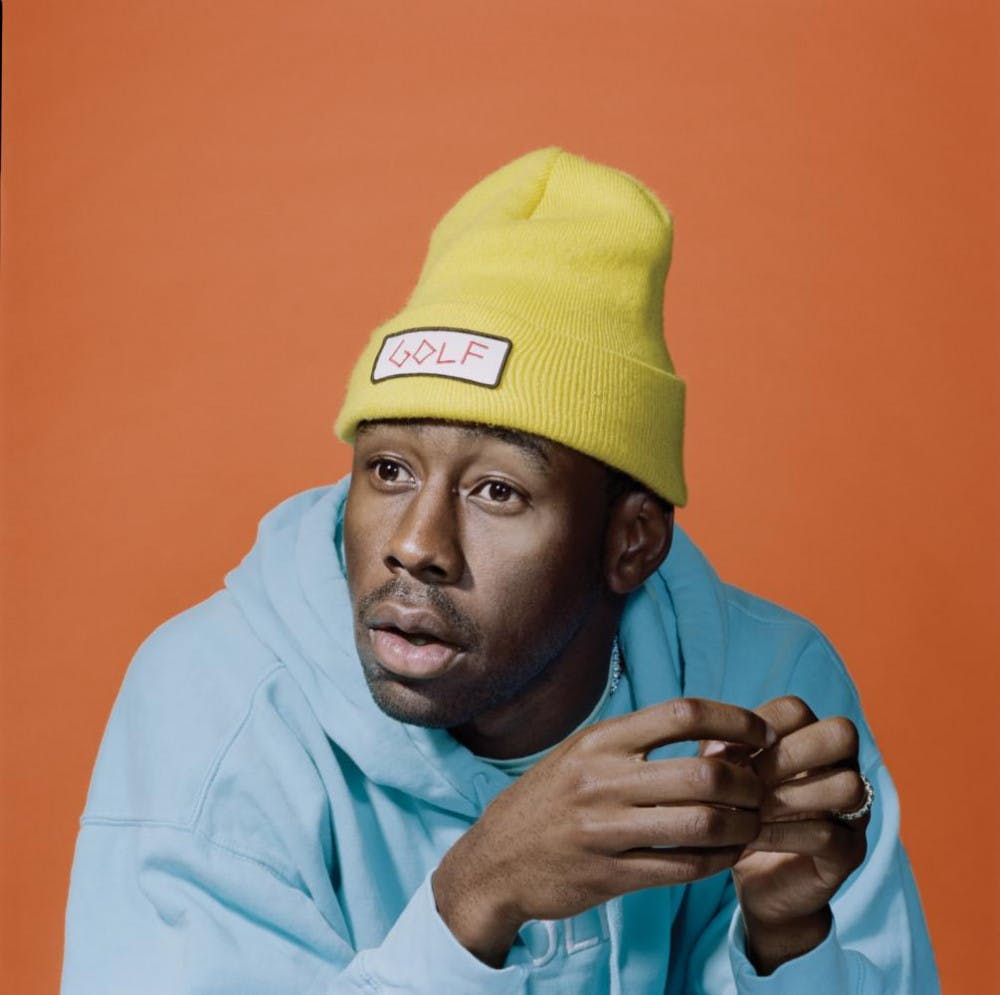Tyler the Creator is easily one of the most interesting rappers in the hip hop arena. His most recent release, “Flower Boy”, added another layer to his persona. Tyler Gregory Okonma, also known as Tyler the Creator, poured himself into this album.
In reference to the title of his album, Okonma strayed away from his typical dark style while maintaining his quality and individuality. While I haven’t been a major fan of his up until this point, he has always had an undeniable flow and style.
Flower Boy reached number two on the Billboard 200 charts making this Okonma’s highest charting album of his career. The album is something new, something different and something that has the potential to boost Tyler the Creator’s saturation in the industry.
The majority of the album revolves around self reflection, relationships and maturity. Okonma discusses his growth and the journey to recognize where he wants to stand as an artist and as a person. He metaphorically looks at himself as a flower within a garden that he is cultivating into what he knows it has the potential to be.
With growth comes changes and inconsistencies, similar to the many styles and topics included on this album. Some songs are hardcore rap with references to women and drugs, while others exclusively discuss more serious topics such as fame, sexuality and self-awareness.
The second song on the album, “Where This Flower Blooms,” reflects on a life before the fame and how it compares to where he is now. Lyrics like “Rent-A-Center calling everyday, Nobody home,” to “Now I skrrt, skrrt, skrrt in toys I only dreamed that I could afford,” show the literal progression of Tyler into a recognized and successful artist.
Speculations of Okonma’s sexuality also stemmed from some of the lyrics on this albums. “Garden Shed” was just one of the songs on the album that contained lyrics that led people to believe he was discussing his sexuality.
Lines like “Truth is, since a youth kid, thought it was a phase,” and “polka dot know, how it goes, had to keep it on the subwoofer,” allude to Okonma exploring his sexuality even as a youth but feeling like he had to keep his true feelings hidden.
Okonma had tweeted that he had tried to come out a while ago but these tweets were overshadowed by Okonma’s big personality so it wasn’t taken seriously. There has no official response from Okonma on what these lyrics mean, but as a fan it is great to learn more about him as an individual through this album.
Songs like “Who Dat Boy” and “I Ain’t Got Time” show that he has not lost touch with his exciting and blunt tone that he received a lot of his initial recognition from. ASAP Rocky assists Okonma on “Who Dat Boy,” which in my opinion is one of the hypest songs on the album.
On the complete opposite end of the spectrum, songs like “Boredom,” “See you again” and “Lonely” delve into a side of Okonma that is rarely seen. All three songs revolve around a longing to find your niche and a group of friends that accept every aspect of your existence.
This sentiment is extremely relatable, especially within our age group. More times than none, you have certain groups of friends for specific events. You may have friends for a party, studying, or just to listen to your music.
But what about when you cannot find that friend or that group? I think the conclusion that we can come to is we need to be comfortable being by ourselves. It’s often healthy to separate from everyone and everything happening around you.
Tyler the Creator shifts and morphs throughout the entirety of this album. It’s majestic and melancholic but at the same time, it provides songs for any event. It has to be one of the most comprehensive albums of the summer, if not the year.
Tyler The Creator-Flower Boy: A look into who he has blossomed to be

Tyler shifts and morphs throughout the entirety of this album. It’s majestic and melancholic but at the same time, it provides songs for any event.



